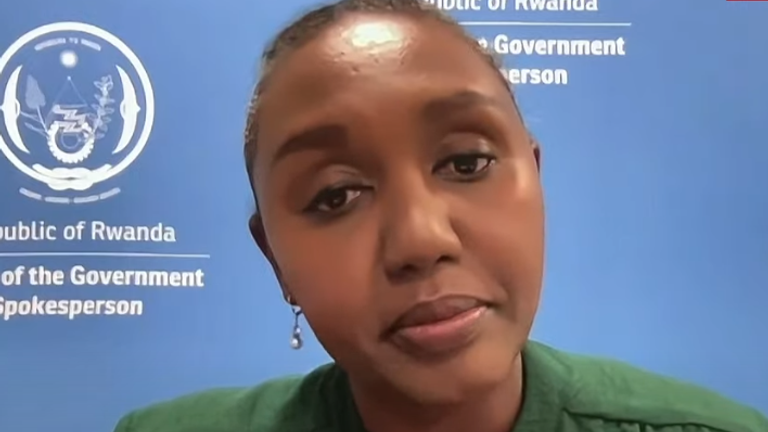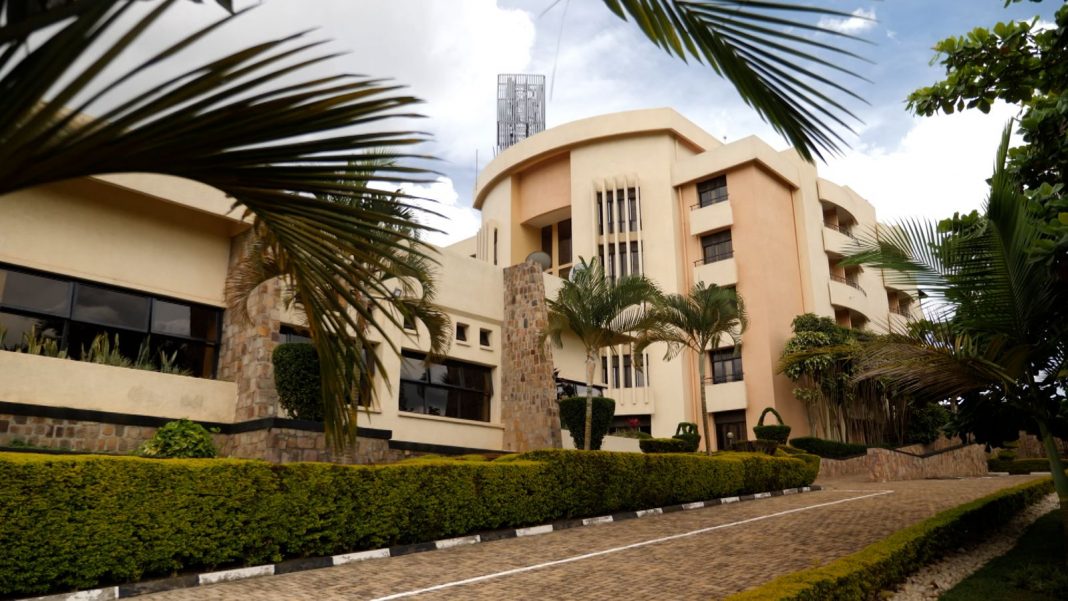‘Come as a guest, leave as a friend’ is the sign that greets visitors as they drive into the grounds of Hope Hostel.
No one has come to stay as a guest since late May 2022 when the UK government first booked out the 50-room building in anticipation of the approval of its plan to deport unwanted asylum seekers here.
And the last people to check out of the hostel did not leave as friends.
Inside Hope Hostel
Some 22 survivors of the 1994 genocide who lost their families in the violence were evicted and paid a small sum to rehouse themselves by the Rwandan government in the wake of the deal being finalised.
The hostel was previously called the Association of Student Survivors of Genocide (AERG) hostel and built to house them as part of the One Dollar Campaign – a Rwandan diaspora fundraising effort.
The hotel is a symbol of the UK’s 18-month struggle to get its plan approved and the disregard for the long-term stability of those most impacted by it.
When asked how much the UK has been paying to keep the place empty, Hope Hostel’s managing director Bakina Imael let out a squeal of shock.
“This is a confidential matter between the Rwandan government and the Hope Hostel management,” he said.
He insists the hostel was already transforming into a private business when the deal was being closed.
Read more:
What is the government’s Rwanda plan and what will they do next?
Analysis: PM’s suggestion after Rwanda ruling is disingenuous
Rwanda has tough approach to dissent
None of the former residents we reached out to would speak to us out of fear of reprisals – a reflection of Rwanda’s notoriously tough approach to dissent.
This scarred human rights record and accusations of political assassinations in the diaspora was referenced in the UK Supreme Court’s ruling against the government’s plan to deport asylum seekers to the country.
Other key evidence cited in the judgement was legal analysis from the UN Refugee Agency (UNHCR) around threats of deportation with examples of asylum seekers sent back to the danger of their home countries.

Rwanda government spokesperson Yolande Makolo
“It is ultimately a decision of the UK judicial system,” the spokesperson for the Rwandan government, Yolande Makolo, told Sky News in response to the ruling.
“What we did object to is really being portrayed as unsafe. Rwanda is a safe country – sending asylum seekers back to their countries where they are persecuted, it does not do that.”R
Refugees say they were threatened with deportation
The Rwandan government is currently working on a treaty to address the concerns of the court as Prime Minister Rishi Sunak works to push through emergency legislation.
Ms Makolo said the treaty will “re-emphasise guarantees and address the concerns of the court and reassure anyone who has any worries about asylum seekers being sent back to the countries that they came from.”
Though the Rwandan government insists it will not forcefully deport any asylum-seekers, refugees who have been living here for years say the threat is there.
“For a while we felt safe in Rwanda but recently the Rwandan officials have become harsh towards us and have threatened to deport Burundians,” said one exiled Burundian journalist living here since 2015.
“Rwanda has warned us not to conduct any sort of journalism in Rwanda or to talk out against the Burundian government or else deportation.
“We don’t know what the two governments discuss, so me and my colleagues always feel the fear of deportation.”
Additional reporting by Vauldi Carelse, Africa producer







